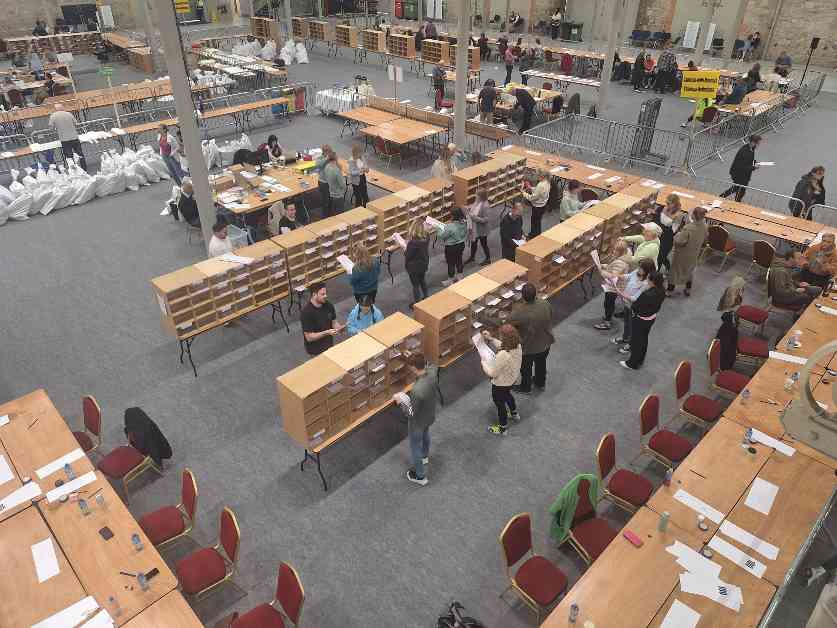Impact of Transfers on Southside Race Outcomes
As the political landscape in Ireland continues to evolve, the impact of transfers on election outcomes has become a crucial factor in determining the success of candidates. The recent local elections in Dublin’s Southside constituencies of Ballyfermot-Drimnagh and Kimmage-Rathmines have shed light on the shifting dynamics of voter preferences and the influence of strategic transfers on election results.
Analysis of Ballyfermot-Drimnagh Constituency
In the Ballyfermot-Drimnagh constituency, the high voter turnout of 39.63% highlighted the importance of local elections to the community. Sinn Féin’s Daithí Doolan emerged as the top candidate with 15% of the vote, followed by veteran independent councillor Vincent Jackson securing his 7th term on Dublin City Council. People Before Profit’s Hazel de Nortúin and Phillip Sutcliffe of Independent Ireland also won seats, showcasing a diverse representation within the constituency.
The strategic use of transfers played a significant role in shaping the outcome of the race. For instance, Sinn Féin’s second candidate, Mamy Zema Nkoy, received 258 transfers that helped secure her colleague’s election on count two. The distribution of preferences from various candidates highlighted the intricate web of alliances and rivalries within the political landscape.
The decline in support for incumbent Lord Mayor of Dublin, Daithí de Róiste, reflected the challenges faced by established parties like Fianna Fáil. Despite receiving 7.6% of first preferences, de Róiste failed to secure a seat, emphasizing the importance of securing transfers from other candidates. The reluctance of Sinn Féin voters to transfer to Fianna Fáil, as well as the competition from other parties like the Social Democrats and independents, further complicated the electoral dynamics.
The success of candidates like Phillip Sutcliffe, who benefited from transfers from independent candidate Dolores Webster and the Irish Freedom Party’s Barry Ward, highlighted the strategic importance of forming alliances and leveraging cross-party support. Sutcliffe’s ability to secure transfers from diverse sources underscored the need for candidates to appeal to a broad spectrum of voters to ensure electoral success.
Insights from Kimmage-Rathmines Constituency
In the Kimmage-Rathmines constituency, a six-seater race saw candidates from various parties securing seats through a complex interplay of transfers and voter preferences. The Greens’ Carolyn Moore emerged as the poll topper with 12.21% of first preferences, followed by candidates from Fine Gael, Labour, Right2Change, and the Social Democrats.
The presence of multiple candidates from Sinn Féin highlighted the challenge of vote splitting within a proportional voting system. Despite receiving a combined 9.48% of first preferences, Sinn Féin failed to secure a seat, allowing parties to their left to capitalize on the fragmented support base. The victory of Eoin Hayes of the Social Democrats underscored the appeal of socially progressive policies to voters in the constituency.
Strategic transfers played a crucial role in determining the outcome of the race, with candidates like Phillip Sutcliffe leveraging support from various sources to strengthen their electoral position. The failure of any candidate to reach the quota of 2,372 highlighted the importance of securing transfers from eliminated candidates to secure a seat on Dublin City Council.
The competition between parties like People Before Profit, the Social Democrats, and Fianna Fáil showcased the strategic alliances and rivalries shaping the political landscape in Kimmage-Rathmines. The ability of candidates to harness transfers effectively and appeal to a broad spectrum of voters was crucial in securing electoral success in a closely contested race.
Implications for Future Elections
The analysis of transfers in the Southside constituencies of Ballyfermot-Drimnagh and Kimmage-Rathmines provides valuable insights into the shifting dynamics of voter preferences and the impact of strategic alliances on election outcomes. As political parties prepare for a potential general election, the lessons learned from the local elections highlight the importance of forming alliances, securing transfers, and appealing to a diverse range of voters to ensure electoral success.
The call for a leftist alliance by People Before Profit TD Paul Murphy underscores the potential benefits of strategic cooperation between parties like People Before Profit and the Social Democrats. By pooling their resources and leveraging cross-party support, progressive parties can strengthen their electoral position and challenge established parties in future elections.
Overall, the analysis of transfers in the Southside constituencies of Ballyfermot-Drimnagh and Kimmage-Rathmines highlights the complex interplay of alliances, rivalries, and voter preferences shaping the political landscape in Ireland. As parties navigate the challenges of electoral politics, the strategic use of transfers and the ability to appeal to a broad spectrum of voters will be crucial in determining the outcome of future elections.












